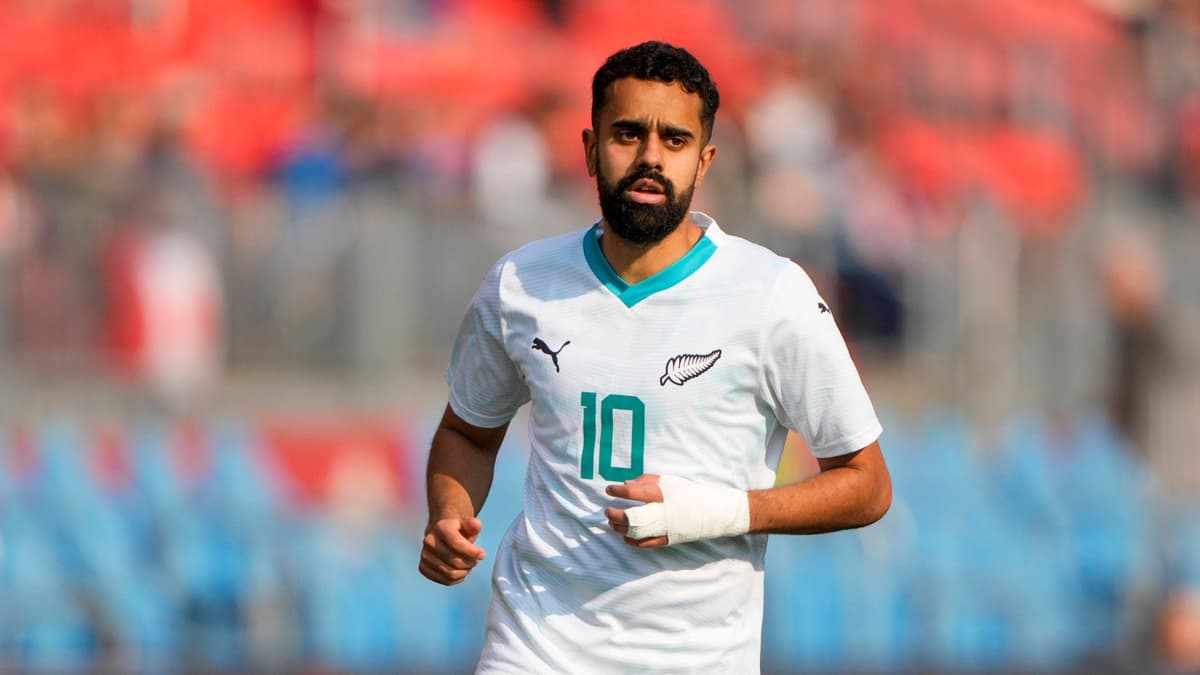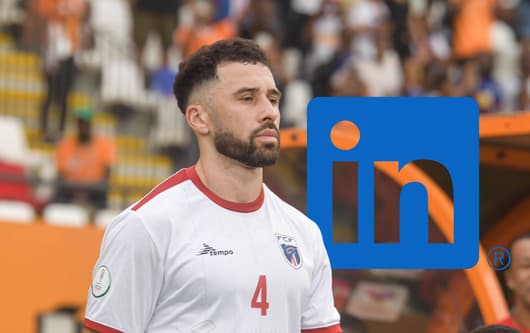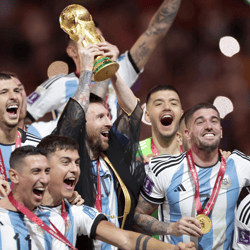-
News
- 8 hours ago
Sarpeet Singh: Next year, the New Zealand midfielder could become only the second player of Indian heritage to appear at a men's World Cup

New Zealand recently qualified for the World Cup for the third time in their history.
Having participated in the 1982 and 2010 tournaments, they are set to participate in the 2026 tournament in the United States, Canada and Mexico.
Midfielder Sarpeet Singh was key to the qualification and he could become only the second player of Indian heritage to appear at a men's World Cup.
He recently sat down with World Soccer to discuss that heritage as well as New Zealand's chances next year.
What are New Zealand's realistic aims at the World Cup next year?
It depends on who we're drawn against, but I feel getting out of our group is a genuine possibility. Maybe in the past the team has gone to a World Cup with somewhat of an inferiority complex. However, this is now a new generation of players. The majority of the first team are based in Europe. We believe we can compete with the world's leading teams. Reaching the last 32 is achievable, that should be our minimum aim.
You were 11 years old during New Zealand's last appearance at the World Cup in South Africa 2010, what are your memories of that tournament?
We were unbeaten in the tournament [New Zealand drew their three group matches, finishing third in their group]. The standout game was against Italy, and we came very close to beating them. To finish ahead of the defending world champions was a great achievement. That team did the country proud and were very unlucky not to progress. We now have the opportunity to go further.
Will New Zealand be at a disadvantage given the level of opposition faced in the qualifiers? The team scored a total of 29 goals, thrashing teams like Vanuatu (8-1) Samoa (8-0) and Fiji (7-0)...
Some of the results were crazy. You don't tend to win international games by such wide margins. We are big favourites in these matches but ultimately, we can't control who we play. Our job is to respect our opponent and not take victory as a given. At the World Cup we will be underdogs, but we can use that to our advantage. As a group, we will need to rise to the higher standards we will come up against.
How would you rate your personal performances during the qualifying matches?
I was happy with my contribution. I scored two goals and had several assists. In these games we have the majority of possession and that suits my style of play.
Chris Wood is New Zealand's all-time top scorer and most recognisable player. Who else impressed during the qualifiers and can go on to make a name for themselves at the World Cup?
Chris had an excellent season with Nottingham Forest. Many people wrongly assume that we just play the long ball [up to him], but there is so much more to his game. From my point of view, his physicality to hold the ball up allows me to make runs into the opposition box. We are a tight group, and I don't like to pinpoint individuals but since you're pushing me, 'll give special mentions to Liberato Cacace (Wrexham) and Tyler Bindon (Sheffield United on loan from Nottingham Forest). Both are young and have the platform to showcase their ability on the biggest stage.
💬 Sarpreet Singh
"Growing up it was very rare to see a player who looked like me or shared my background playing at the highest level...It's truly humbling that I'm in a position to inspire Indian and South Asian footballers in general." pic.twitter.com/bWtXuF2c0r— World Soccer (@WorldSoccerMag) October 9, 2025
Englishman Darren Bazeley manages the All Whites. Tell us about his qualities...
The coach is big on shared leadership. He wants everyone to have their opinion heard. Any egos must be left at the door. Compared to the qualifiers, he's aware that we are likely to have less possession at the World Cup. However, he still wants us to play to our strengths and do what we are good at, even with less of the ball. Closer to the time he will come up with the necessary tactics, once we know who is in the group. Since qualifying, his immediate message, and that of the wider football federation, is that we are not going to the World Cup to make up the numbers. We are there on merit and we shouldn't fear anyone.
You were born in Auckland to parents from the Punjab in northern India. Next summer, you could become only the second footballer of Indian heritage to play at a World Cup, following Vikash Dhorasoo who represented France in
2006. Does that bring pressure?
Growing up it was very rare to see a player who looked like me or shared my background playing at the highest level. As I've grown older, I've become more appreciative of the importance of representation. It's truly humbling that I'm in a position to inspire Indian and South Asian footballers in general. If you look at my socials you would think India have qualified for the World Cup and not New Zealand! The love and interest from Indian football fans and media has been incredible.There is a very big Indian community in the US and Canada and I'm pretty sure they will come out to support us.
You played against India in 2018. What do you remember of that match?
It was a unique occasion. It's not every day a footballer named Singh plays against India in India. I had to deal with a lot of media attention. It was an incredibly proud moment for my family. We won the game 2-1 and I had two assists, so naturally I was very happy with that. India are tough opponents. Sharing the pitch with Sunil Chhetri was special. He's a legend of Indian football.
How does a 20-year-old playing for Wellington Phoenix in the A-League end up at one of the world's biggest clubs in Bayern Munich?
I did well at the Under-20 World Cup [in Poland in 2019] and that's what impressed Bayern's scouts. It was a big move on a number of levels. The initial plan was for me to play for the reserve team, but I was fast tracked and found myself in the first team with the likes Robert Lewandowski, Thiago and Thomas Muller. Even before I made my debut for Bayern in the Bundesliga, I played against Arsenal, Real Madrid and Milan [in the 2019 International Champions Cup]. I was on the pitch with the world's best players, the biggest names in the sport. Looking back now, yeah, it does come across as extraordinary. However, you must have confidence in your ability. There was a reason they signed me. You can't afford to be too awestruck.
Was there any player at Bayern Munich in particular who you looked up to?
Joshua Kimmich took me under his wing. I learnt a lot from him and not just in terms of how he trained but the way he interacted with team-mates and opponents to the media and supporters. He has won many Bundesliga titles. He's a Champions League and Club World Cup winner too. He's won over 100 international caps as well. A fantastic footballer and great team-mate.
You had highs and lows in Germany. A move to Werder Bremen fell through due to injury, your time at Jahn Regensburg was restricted due to an admin error, and then you were released by Hansa Rostock after they were relegated. How did you overcome those hurdles?
The gap between the reserves and first team is a very big one, and that's not just at Bayern but for the Bundesliga in general. There is only so much you can learn at that level. To progress I had to look at moves away, even if they were loans, but nothing went smoothly. My career was on hold. I would get myself in shape, get a consistent run of games and then something unexpected, out of my control would happen and it was back to square one. It was very tough especially when your family is on the other side of the world. Over time facing adversity, you realise a level of resilience you didn't know you had.
Interview by Imran Azam.


















